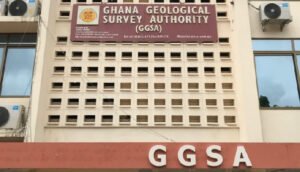
Ghana has a chequered history of losses and triumphs, anguish, pain and reconciliation, just like most nations on this planet.
Indeed, by the time of the celebration of national independence, we had so mauled one another and decapitated our original political leadership in fights that were unnecessary that we stayed disunited and never enjoyed the joy of a new Ghana.
This was in spite of the fact that a firm timetable was already in place with steps being taken to constitute a Ghana team and leaders to lead the nation, with the lowering, finally, of the British flag.
Unfortunately, what was intended as a government in waiting became a sharply divided party that would be fighting each other until 1992. That is what disunity does to a nation, community, government and organisations. What should ordinarily have been an eleven-day journey would take 40 years.
Journey
Any discussion on Ghana’s road to independence or political history cannot be complete without the issue of quality of leadership that we had been blessed or cursed with.
While we may remember one or two for vision and selflessness, we have had others who were merely pedestrian. But we cannot in all of that forget the tragedy of three former Heads of State dying through executions by a military junta that clearly didn’t know their left from their right when they broke into armouries and upset the whole socio-economic and political fabric.
As their own actors and memoires have suggested, the very ingredients of national transformation and vision were amiss at the time plots were hatched to overthrow lawfully constituted authority.
Managing chaos
As we would admit, it took half a decade for the Provisional National Defence Council, for instance, to begin looking at the issue of development together with development partners. The first five years or so were just revenge and self-preservation and the forming of internal alliances based on ethnicity and power struggle that resulted in resignations and assassinations.
That is why it is important for us as a people to learn our lessons from our own mistakes and live with the Constitution that had been handed over to us by the last military junta, even if we have some revisions to make on it later in our history in enhancing inclusivity and participation or empowering the Legislature to perform better.
This is important in the light of the dark shadows that hung over the nation during the declaration of the 2000 presidential elections, as well as the two Election Petitions from both sides, rather than allowing anger and frustration to have rein – with dire consequences for our development and stability as a nation.
But we also have lessons to learn as we witness military aggression and misplaced use of political and military force on the part of one mighty nation and its demented leader.
To think that this is happening at a time that the world is united in fighting a pandemic, by pooling resources, research, technology and expertise in developing preventive and curative cures, is nauseating.
Ultimate lessons
Frustrations are the reasons why we have laws to restrain all of us from overreacting in any given situation. That we think differently is the reason why we dialogue, and that is also why we manage excesses from any quarters – whether it is the Executive or Judiciary or traditional and religious fronts – by recourse to the Constitution.
Ghana’s history has seen too many people burning their fingers over coups that the spectre of kids pretending to know better than adults should be addressed from the very sources that are breeding that culture of criminal, erratic behaviour.
The only condition under which we must take up arms here in Ghana, united in that resolve, is when we are attacked from outside – not when we disagree with one another in policy direction.







